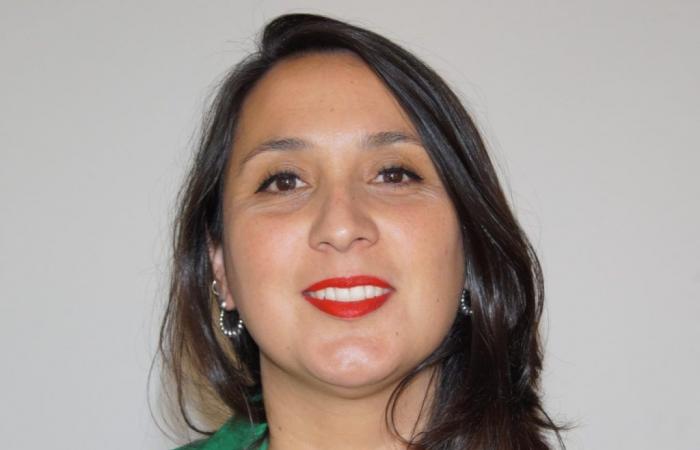
Announced by President Gabriel Boric in the recent Public Account 2024, the bill comprehensively addresses the protection and well-being of educational communities, promotes a training approach in the matter and draws on previous legislative initiatives and technical recommendations developed by instances convened by Mineduc.
This morning the Ministry of Education submitted to the Chamber of Deputies the bill on Coexistence, Good Treatment and Well-being of educational communities, which was announced by President Gabriel Boric in his Public Account, on June 1.
The legislative proposal aims to promote a form of management so that educational communities are spaces of protection and well-being, promoting comprehensive, systemic and efficient actions that help prevent and eradicate any type of harassment, violence and discrimination within the establishments. Hence the purpose of understanding and articulating all promotion, prevention, focused attention and intersectoral articulation actions in a legal body with systemic and intersectoral objectives.
For the preparation of this bill, various previous initiatives were taken into account that have managed to position in the public debate the need to regulate the axes of coexistence, considering the different types of violence that arise in the educational space, such as cyberbullying, discrimination, sexual harassment, among others. The Mineduc proposal expands, for example, what is addressed in the bill Bulletin No. 13983, -known as “José Matías” in allusion to the trans adolescent who committed suicide in Copiapó in 2019, a victim of bullying-, which is in second step, by incorporating ideas from various bills related to educational coexistence, non-discrimination, security, protection of educational equipment and prevention of crimes and drug consumption in educational spaces, understood as risk factors that affect the climate and mental health of educational communities. In addition, it integrates relevant content to address the well-being of educational teams, prepared from various experiences, including the one that led teacher Katherine Yoma to suicide, this year in Antofagasta.
The Minister of Education, Nicolás Cataldo, maintained that “coexistence is a fundamental component of the educational process: it influences academic development, enriches socialization experiences, fosters respect, mutual care and offers guarantees for the well-being of communities. Its positive effects also nourish democratic culture. As a society we have witnessed a certain normalization of acts of violence. What is more worrying, it has been validated as a conflict resolution mechanism. “Educational communities are not immune to this phenomenon.”
In this regard, he noted that “this bill seeks to complement the work we are doing at the Ministry of Education, strengthening the existing regulatory framework, promoting greater coherence of the system and its updating in the face of the transformations of the phenomenon.” Indeed, the initiative is nourished by the recommendations of different technical bodies convened to address issues linked to coexistence, protection of educational spaces and mental health, such as the report of the Advisory Council on School Coexistence, Well-being and Mental Health (2022), the report of the Council for Educational Reactivation (2023) and the report of recommendations of the Technical Board of Educational Centers as Protected Spaces (2023). Added to these is the recent update of the National Educational Coexistence Policy. The Minister Secretary General of the Presidency, Álvaro Elizalde, indicated that “the message presented by President Boric reflects the painful experiences that our country has occurred and parliamentary motions have been collected in order to have legislation as required by a country. of the twenty-first century, with all institutions that promote school coexistence and guarantee it. In that sense, I want to highlight the work that parliamentarians did to make these issues visible through the motions and we hope that it will be supported by both chambers.” Strengthening functions Having effective measures to improve coexistence is a growing demand from educational communities.
In 2023, the Superintendence of Education registered more than 17 thousand complaints, of which 72.1% were due to cohabitation, 4.9% more than the previous year. To address this demand with an adequate regulatory framework, this bill proposes a series of measures that are grouped into four axes: establishes the role of the State to address coexistence; strengthens the coordination role and management instruments for educational coexistence, which establishes, among other points, the obligation for all establishments that receive resources or contributions from the State to have an exclusive dedication coexistence coordinator , full-time and profile appropriate to the position, considering flexibilities for certain establishments according to their particularities; strengthens institutional functions that guide a pedagogical approach, which among various actions implies the reinforcement of teams and faculties of the Superintendency of Education for the collaborative management of conflicts, training educational communities and improving their oversight and sanctioning capabilities; and creates an Observatory of Educational Coexistence in the Education Quality Agency.
The fourth axis contemplates the well-being of the educational teams in the establishments. Rating for “robust proposal” “I want to thank the government for having considered, as a central and heart part of this initiative, the José Matías law, which not only includes it, but expands and strengthens it for better school coexistence, to protect comprehensively to students in the face of harassment, violence and discrimination. “Schools must continue to be the refuge of our students, and that is where we learn respect for others,” said the deputy for the Atacama region, Daniella Cicardini. “I appreciate that the Minister of Education has listened to what is happening in the different educational establishments in the north.
We hope that with this more robust proposal we can have better work in the classrooms, in the teachers, in the treatment given to the students and in the mechanisms that are used to avoid having to mourn a death,” said the deputy. for the Antofagasta region, Sebastián Videla, “We deeply value this project. We were waiting for it a long time ago. It is a great advance by the Government and the Ministry of Education in particular, and by the way, by the Education Commission of the Chamber of





